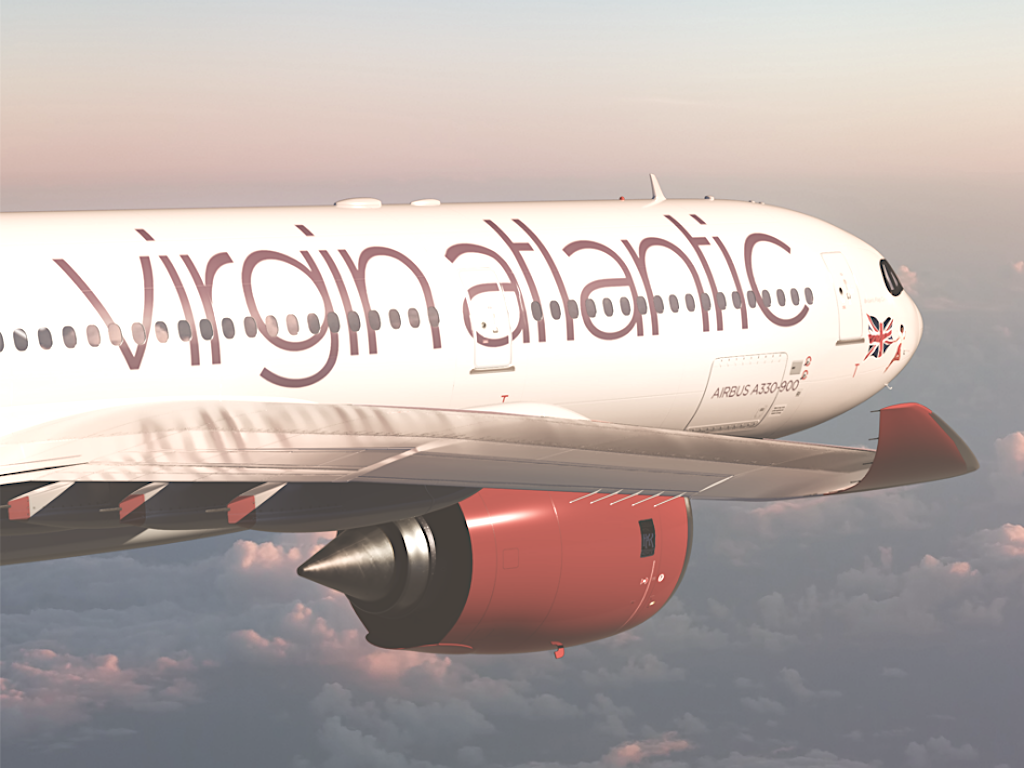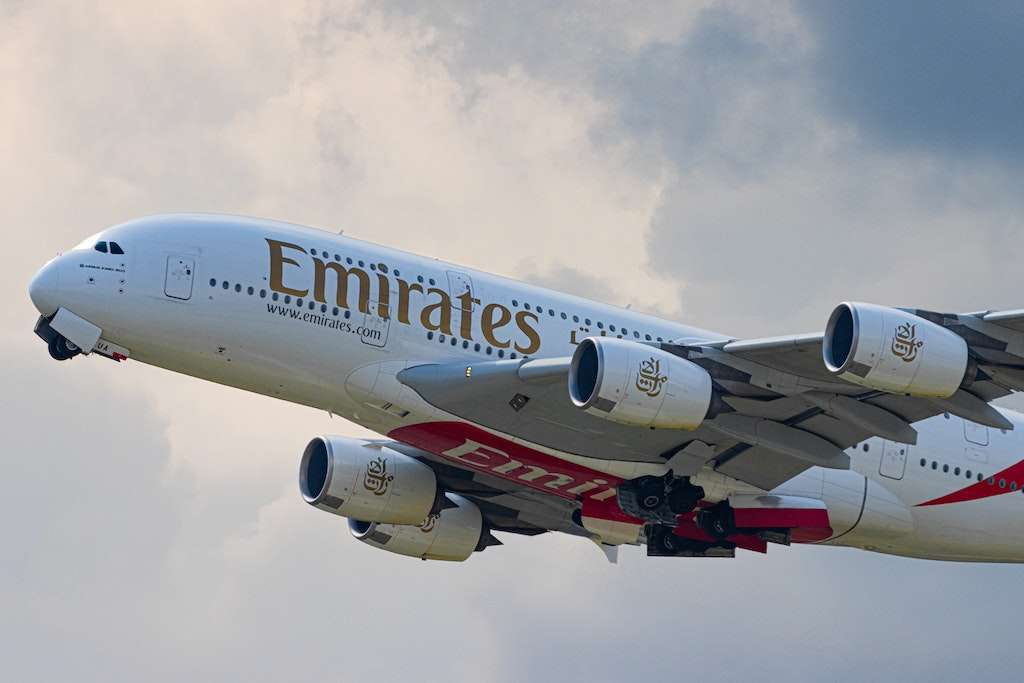The U.K.’s aviation regulator has granted Virgin Atlantic approval to make the first transatlantic flight on 100 percent sustainable aviation fuel as the first SAF Emirates flight takes off from Dubai.
In a groundbreaking move, Britain’s aviation regulator has given the green light to Virgin Atlantic for what the airline says is a “world-first” transatlantic flight powered entirely by sustainable aviation fuels (SAF). The U.K. Civil Aviation Authority (CAA) made the announcement today. The flight from London to New York is scheduled for November 28, pending further regulatory approvals.
CAA Chief Executive Rob Bishton emphasized the regulator’s role in enabling the aviation industry to adopt sustainable practices. “This permit not only allows Virgin Atlantic and others to showcase their commitment to sustainability but also serves as an example of how the industry is always exploring new technologies,” Bishton stated.
The permit granted by the CAA serves as the initial step, allowing Virgin Atlantic to seek approvals from regulators in the United States, Ireland, and Canada, as the transatlantic flight will include their respective airspaces.
The CAA conducted comprehensive evaluations of the planned flight, including ground testing with Rolls-Royce on a Trent 1000 engine operating exclusively on 100 percent SAF. This initiative, partly funded by the U.K. government, serves as a pivotal test case for demonstrating the feasibility of powering aircraft with sustainable fuels.

Virgin Atlantic’s effort to embrace sustainability has received strong support from a number of aligned companies, including Boeing, Rolls-Royce, BP, and others.
Sustainable aviation fuels are biofuels designed to reduce carbon emissions compared to traditional jet fuel. However, their production costs are higher, making it an exciting yet costlier proposition for airlines.
The aviation industry is under increasing pressure to reduce its carbon footprint; it produces about 2 percent of global emissions, emitting both carbon dioxide and non-CO2 pollutants. SAF is seen as a potential solution, but airlines acknowledge that transitioning to these fuels will be gradual and may impact ticket prices, potentially affecting passenger demand growth.
Virgin Atlantic received significant support from the U.K. government last December, with an allocation of up to £1 million ($1.2 million) earmarked to facilitate the aviation industry’s first transatlantic SAF-powered flight. Shai Weiss, the CEO of Virgin Atlantic, expressed his gratitude for the collaborative effort that led to this milestone. He reaffirmed the airline’s commitment to using 10 percent SAF by 2030 and called on the government to nurture a thriving UK SAF industry.
Emirates powers Dubai to Sydney with SAF
This landmark project comes as Emirates has announced its first flights powered by sustainable aviation fuel taking off from Dubai. Its first flight powered by SAF from Shell Aviation headed to Sydney last month.
“We’re pushing ahead with proactive measures to enable more sustainable flying now and in the future, and powering flights from our Dubai hub is just one of the steps we’ve taken to reduce emissions and help our customers minimise their own carbon footprint. We still have a long road ahead, and we hope that our partnership with Shell Aviation inspires more producers to address the supply gaps and make SAF readily available in major hubs like Dubai,” Sir Tim Clark, President of Emirates Airline said in a statement.

Emirates and Shell entered into an agreement earlier this year to explore sustainable travel options. In January, Emirates demoed its first 100 percent SAF flight which flew for about an hour around Dubai.
“Emirates and Shell have a long-standing history of collaboration, and we are thrilled to continue this journey together to enable SAF usage in the UAE. This first-ever supply of SAF to Emirates in Dubai is an example of what can be achieved when different parts of the aviation value chain come together. Our hope is that this milestone will inspire further advancements in SAF adoption throughout the aviation industry in the UAE and the wider region,” said Jan Toschka, President of Shell Aviation.
The first SAF flights come after Emirates recently launched a $200 million research and development fund aimed at reducing the sector’s use of fossil fuels.
Related on Ethos:


